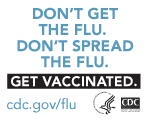Family History: Collect Information for Your Child's Health
 Collecting your family's medical history can be important for your child's health. You might not realize that your father's diabetes or your cousin's cystic fibrosis could affect your child, but this family history information can be important for keeping your child healthy.
Collecting your family's medical history can be important for your child's health. You might not realize that your father's diabetes or your cousin's cystic fibrosis could affect your child, but this family history information can be important for keeping your child healthy.

Family members share genes, and they may also have similar behaviors, such as exercise habits, and cultural factors, such as the foods they eat. They also may live in the same area and come into contact with similar environmental factors. Family history includes these factors, which can all affect health.
Family history can help your child's doctor make a diagnosis if your child shows signs of a disorder. It can reveal whether your child has an increased risk for a disease; if so, the doctor might suggest screening tests. Many genetic disorders first become obvious in childhood, and knowing about a history of a genetic condition can help find and treat the condition early.
Most people do not think that chronic diseases such as heart disease and type 2 diabetes affect children, but children with a strong family history of these diseases can show signs in childhood. However, having a family history of a disease does not mean that your child will get that disease. Children with a family history of chronic diseases can benefit from developing lifestyle habits, such as exercising and eating healthy, right away. These habits can benefit the entire family and might help prevent or delay these conditions.
Ways to Collect Your Child's Family History
- Record the names of your child's close relatives from both sides of the family: parents, siblings, grandparents, aunts, uncles, nieces, and nephews. Include conditions each relative has or had and at what age the conditions were first diagnosed. For relatives who are deceased, include the cause of death and the age at death.
- Use the US Surgeon General's online tool for collecting family histories, called "My Family Health Portrait."
- Discuss family history concerns with your child's doctor. Gather family history information before seeing the doctor, using "My Family Health Portrait." Fill out family history forms carefully. Families considering having another child should share family history information with the mother's doctor.
- Update your child's family history information regularly and share new information with your child's doctor. Remember that relatives can be newly diagnosed with conditions between doctor's visits.
- Remember that Thanksgiving Day is National Family History Day!
The best way to learn about your family history is to ask questions. Talk at family gatherings and record your family's health information—it could make a difference in your child's life.
More Information
- Listen to a podcast, Family History - An Early Warning for Your Child (
 9:57 mins)
9:57 mins)
- Family History, National Center on Birth Defects and Developmental Disabilities
- Family History: Resources and Tools, National Office of Public Health Genomic


